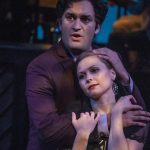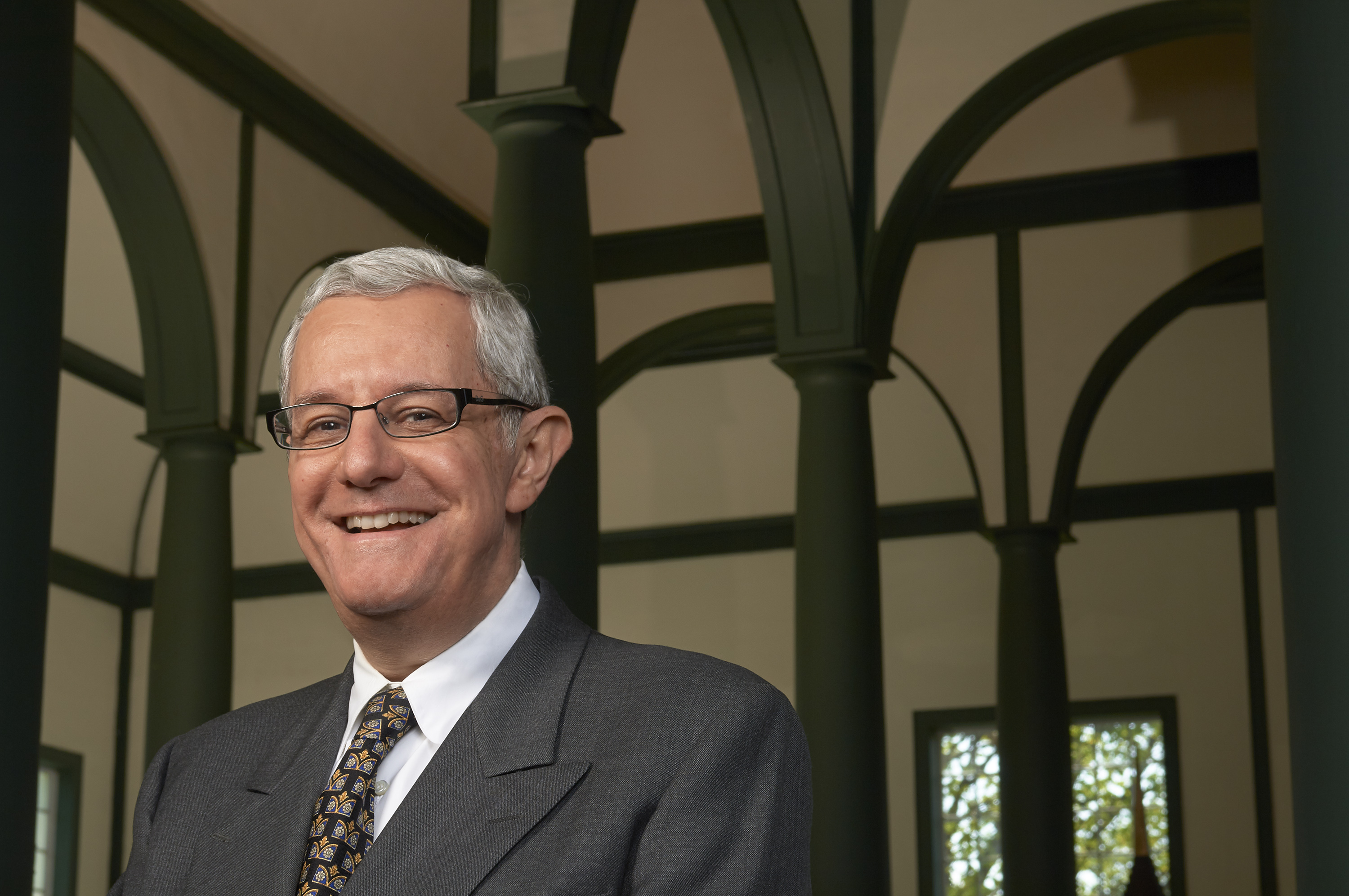by Stephen Cera

Theo Lebow and Alisa Jordheim in The Barber of Seville
photo: Chris McKenzie
BOSTON – The popular notion of opera as a grandiose entertainment, performed by famous singers in large theaters for well-heeled patrons, was turned on its head here this past week. Boston Midsummer Opera’s production of Rossini’s comic masterpiece, The Barber of Seville, proved that a potent musical and theatrical experience can be had in relatively modest surroundings.
Director Antonio Ocampo-Guzman knows that bigger doesn’t necessarily mean better. His Barber embodied an efficiently “immersive” concept, with the cast sashaying into the aisles, climbing staircases, and singing from every corner of the intimate if dry-sounding 400-seat theater. The production evinced tasteful humor both onstage and off, becoming a lot more than a vulgar romp (as sometimes happens with this work.)
A predominantly youthful cast, accompanied by a reduced orchestra playing at the rear of the stage (no pit in the mainstage at the Mosesian Center for the Arts) — and with a unit set — managed to give us Rossini that sparkled like fine champagne.
With respect to the cast, I need to declare an interest: the Count Almaviva, Theo Lebow, is the son of a close friend from Los Angeles.
But you needn’t take my word about Theo Lebow’s excellence as a Rossini lyric tenor…he also got a rave from the Boston Globe [see below]. In a pre-performance talk, composer Yehudi Wyner, a Pulitzer Prize winner in music composition and former chair of the music department at Yale, identified him as an heir to the line of Rossini tenors that lately includes Juan Diego Flórez and Lawrence Brownlee. (Wyner himself took the silent role of Ambrogio the gardener in this production… his bio mentions that he “got his start sweeping in Verdi’s Aida when, as a supernumerary, he was placed behind the elephant.”)
As Rosina, Alisa Jordheim — a vivacious young soprano from Wisconsin – glittered both visually and vocally, with her formidable technique well under control. She negotiated Rossini’s fiendish runs and roulades with accuracy, while acting with exceptional grace. By turns mischievous, temperamental and loving, her Rosina was more than a grinning doll – not only attractive, but piquant and glowing.
As the eponymous barber, Robert Balonek relied heavily on boyish charm, bouncing about in an exuberant manner. His baritone energetically delivered the famous aria, “Largo al factotum.”
Jason Budd, the Doctor Bartolo, merits special mention for his powerful singing and acting, which created a vivid personage. Kudos as well to Heather Gallagher, as Berta the maid.
Granted, the costumes looked somewhat bargain-basement, the lighting cues lagged on occasion, and the unit set proved somewhat limiting (Rossini calls for three sets.) Still, conductor Susan Davenny Wyner, leading a reduced orchestra, enforced musical cohesion with increasing effectiveness in each of three successive performances. I attended all three, and would have happily heard a fourth. With such accomplished singing and playing, Rossini’s effervescent score took wing and gave delight.


